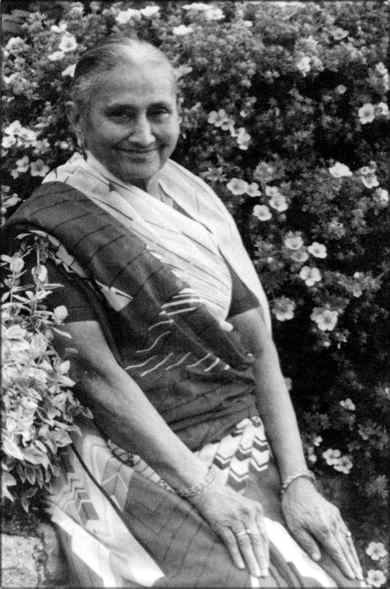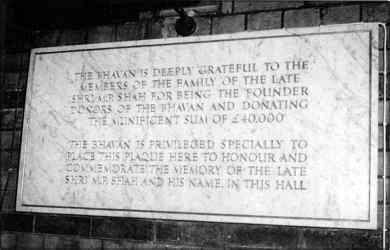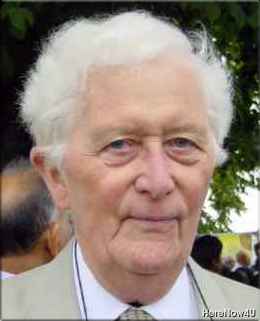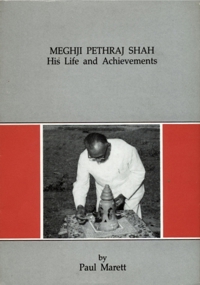
Meghjibhai's health was always good. However, he had a premonition that he would not survive his sixtieth year. He stayed in London throughout 1963 and in the first half of 1964. He was at that time thinking of returning to make his home again in his native land and a letter written by him at this time reveals his uncertainty, 'It occurs to me to come and settle in India and still I can't come to a decision. Let us see where God directs.' Meanwhile, he stepped up his philanthropic activities and was in correspondence with leading figures as well as with people working in the social service field, regarding various new plans for Gujarat and Saurashtra. Various plans were being considered for the creation of more institutions in the fields of education and health. Meghjibhai's intention was to make further donations over the next five years and he was negotiating the establishment of another trust. His main project was for the establishment of a separate University of Saurashtra. He had discussions with Mr. Balvantrai Mehta and Mr. Manubhai Shah about this and the matter was the subject of further correspondence at this time. On Wednesday, July 29th 1964, the Indian High Commissioner in London, Dr. Jivraj Mehta, telephoned Meghjibhai about the plan for a Saurashtra University. Meghjibhai said, 'It is a good plan. I am ready to help if the work is undertaken in my way'. Meghjibhai's method was well known: he would give a generous proportion of the costs of setting up the University. The remaining capital expenditure as well as the responsibilities of management should be borne by the government. Jivrajbhai assured him that this was acceptable and Meghjibhai was very pleased. He said 'I will come to see you at India House on Friday'. But the meeting between them for the furtherance of this important project never took place. Man proposes, God disposes.

Maniben
On that same day, Wednesday July 29th 1964, Meghjibhai set out for the office after lunch. But on the way he was feeling very unwell and he returned home. He got worse and his medical practitioner came and examined Meghjibhai. Meghjibhai's pulse was reasonable, his heart was satisfactory and he was not suffering from much weakness. Medicine was prescribed for him and the doctor left. Meghjibhai seemed better in the evening but felt unwell again in the night and was rather worried about it. However he got up early as usual, made the tea as usual and drank it with Maniben. Then at ten in the morning he felt ill again. The doctor came and examined him and gave him medicine. He had his coffee at eleven and his heart seemed in good order but then he suffered a sudden heart attack. Nothing more could be done and he passed away at about quarter to twelve on July 30th 1964. His pious soul left this world and his mortal body was cremated in Golders Green Crematorium at half past twelve on Saturday. A great man had passed away. The funeral was attended by relatives and a great number of friends from both the Asian and English communities. His Excellency the High Commissioner of lndia, Dr. Jivraj Mehta, attended, a sad tribute instead of the meeting planned for the previous day. A tribute by Mr. Paul A.J. Boyce was published in the Obituary columns of The Times on 17th August 1964. It recalls how Meghjibhai was born in Dabasang in humble circumstances, how he was educated in the village school, emigrated to Kenya in 1919 and 'from the most modest beginnings built a substantial trading and financial organization in Kenya, and a trading business in Bombay'. He will be chiefly remembered for his charitable activities having devoted a considerable part of his resources and much of the last ten years of his life to charitable trusts established by him and his family. More than one million pounds was expended in building hospitals and schools in India and East Africa, and in other charitable purposes, out of resources provided by himself personally. The obituary concludes: 'He will long be remembered by those who worked with him, whatever their background; for his vigorous personality, his strict adherence to principle, and his unfailing courtesy, good humour, and generosity'.
Meghjibhai's sudden death came as a shock to people in Gujarat, and indeed in the whole of India, as well as to the Gujarati community overseas. Businesses closed in mourning in Bombay, Jamnagar, Surendranagar, Wadhwan, Limbdi and other places. It was a severe blow to Gujarat and to India. Meghjibhai greatly helped Gujarat on the path of modernisation: his dream of donating another twenty million rupees to the state of Gujarat remained unrealised.
To his family the suddenness of his passing was a great shock. A short time before he was quietly drinking a cup of coffee in the midst of his family. Everybody gets some illness in the course of life and usually it passes off. There was nothing to suggest that Meghjibhai' s illness was fatal. Fortunately, he passed away without serious pain or long-drawn out anguish. His wife, Maniben, showed great fortitude at this time. Meghjibhai had often spoken of the transience of life. Time, he would say, waits for nobody, and he would try to get all his work completed while he still had time. He would not postpone things. His wife now had to finish the work started by her husband, she had to keep going the institutions which had been set up by him. She had to care for the family and see that the studies of her two sons, for whose sake they had settled in England, should not suffer. If she lacked strength and lost her courage, what would happen to the family?
Not only in India, but also in Kenya, the news of Meghjibhai's death was an occasion of sadness. He had been not only a renowned philanthropist but also a well-liked leading figure in Mombasa, Nairobi and Thika. Amongst benefactors in the fields of education and health he stood out: his generosity had revitalised a number of institutions concerned with education and public service. His was an irreparable loss.
These institutions were Meghjibhai's best memorial. But it was natural that many who knew of his work should want to erect some more tangible memorial to the man who had rendered such sterling service to society and a bust was erected by the Jamnagar Municipal Corporation in the Medical College grounds. All his life Meghjibhai had shunned personal fame and Maniben and all the other members of his family said that the best homage to him would be to continue the institutions set up and maintained by Meghjibhai and to realise the plans which he had thought out for the future.

Plaque at the Vidya Bhavan, London
His family has kept up the philanthropic activities, which Meghjibhai started. Today Meghjibhai is no longer physically present with us but he is present in the good works, which he initiated in his lifetime. Maniben and her sons sincerely believe that his sacred memory will live forever in his good deeds. The donation, which Meghjibhai had promised for the M.P. Shah Hospital in Nairobi, was handed over as Meghjibhai had intended and, also in Kenya, a large donation was made from the Meghjibhai Foundation for setting up health centres. These have already been described in this book. In 1972 the Charitable Trust was approached by Shri Jaisukhlal Hathi, a former cabinet minister in the Indian government and head of Bharatiya Vidya Bhavan International. He said that he was keen to establish a United Kingdom centre of this important Indian cultural foundation and asked whether the Trust would consider being the founder donors. The Trustees were very glad to help and a donation of? 40,000 was made. A most appreciative letter was received from Mrs. Lilavati Munshi, wife of Bhavan's founder, and a marble plaque has been placed in the main hall in the London Centre, now known as Mountbatten Hall.
 Dr. Paul Marett
Dr. Paul Marett

